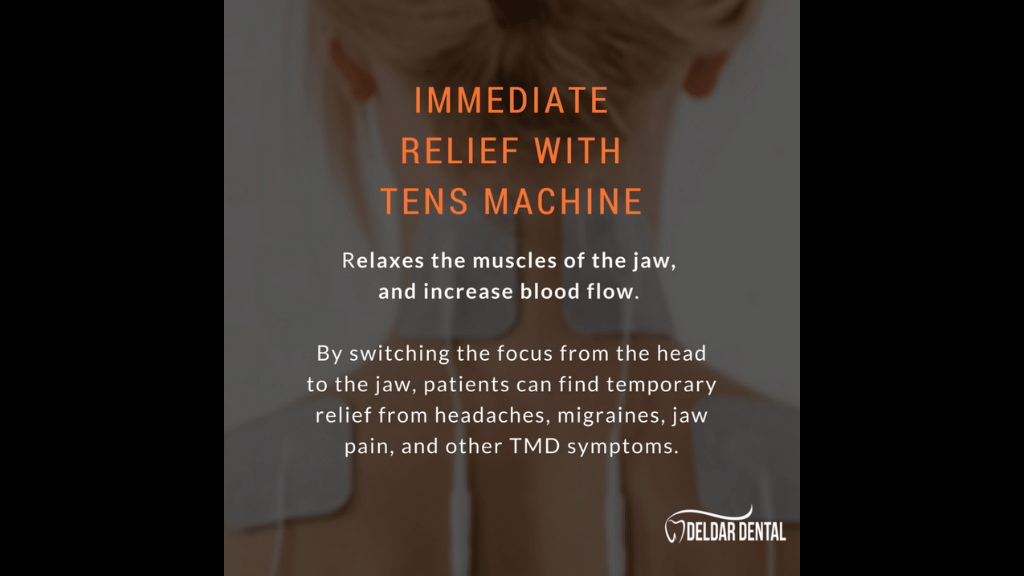Do you often wake up in the morning with stiff muscles? You are not alone – most adults wake up with some sort of stiffness or strain throughout their body after a day of running or because of occupational reasons.
But what if that stiffness doesn’t go away?
This is a daily struggle for many, particularly those with TMJ disorder. Patients with this common jaw disorder have chronically stiff jaw and neck muscles.
But what is TMJ disorder? How can we treat the stiffness and pain that you contend with on a regular basis?
TMJ disorder is a disorder of the temporomandibular joints, or the jaw joints. We all have two of these joints, one on either side of our face next to our ears.
This is the joint that allows the lower jaw to open, close, and move from side to side.
TMJ disorder occurs when those two joints are out of place.
What causes the imbalance?
Either the teeth or the jawbones themselves are out of alignment.
For instance, a person who has a narrower upper jaw and a wider lower jaw can end up with TMJ disorder.
Similarly, someone with very crooked teeth and/or a misaligned bite (malocclusion) can have TMJ disorder as well.
The misalignment of the teeth and/or jawbones puts pressure on the jaw joints itself. This can also add stress on the muscles and tendons of the face.
When the bones and muscles are out of alignment, it can lead to a stiff jaw and neck. Even worse – it can lead to neck and jaw pain.
In fact, some people with this disorder end up with chronic migraines and headaches.
It should come as no surprise. The muscles of the head and neck are closely interrelated.
Take the sternocleidomastoid, for example. This is a long muscle on either side of the neck that extends from the base of the skull, behind either ear, and attaches at the thorax.
If your bones or muscles are not in alignment, you can imagine that this long muscle could become stiff. It can even cause pain in the head, neck, and/or chest.

How a TMJ Dentist Can Help You Combat Neck and Jaw Pain
Combating a stiff jaw and neck – as well as neck and jaw pain – is something that takes continual effort. The reason is because there are multiple factors that can cause the stiffness and pain.
For instance, if someone has been in a car accident, they may have a neck trauma. This can be a long-term problem that a combination of chiropractic adjustments and massage therapy can relieve.
So the first thing we need to do when deciding how to treat the pain is determine the underlying cause.
It can also be the case – as what we’ve seen many times at our Noblesville dental office – a whiplash injury from a car accident can cause the TMJ’s to fall out of alignment, in turn causing TMJ disorder. This too can contribute to the jaw pain and neck pain.

I will also look at the patient’s posture, as this can have a huge impact on the muscles of the head and neck. Bad posture forces the head forward, which strains the neck muscles. The result is pain in the neck and shoulders – and even headaches.
TMJ Treatment at Deldar Dental
As a TMJ dentist, I will also evaluate patients for TMJ disorder due to the neck injury. If they have this condition, I’ll recommend a variety of treatments.
Our comprehensive TMJ treatment plan includes a few steps. This plan targets the painful symptoms while healing the root cause.
- Initial pain relief with Ultra-Low Frequency Transcutaneous Electrical Neural Stimulation (TENS) is an excellent drug-free method. This technique improves blood flow and promotes natural pain relief from endorphins.
- Adjusting your bite. I use a non-invasive, custom-built orthotic that can gently balance your jaw to its optimum position.
- Making it last. This step varies depending on your personal needs. Methods may include braces, adjusting your tooth enamel, crowns, or full smile makeovers. The goal is to stop what’s causing your TMJ disorder at the source while enhancing your bite at the same time.

I will also recommend dietary changes and exercises – like a meditation practice – to help the patient reduce their stress and to help them cope with their pain as they transition to the healing stage of their treatment.
The great thing about these treatments is that when you reduce pain and stiffness in the jaw/face, you’ll often reduce it in the neck and shoulders, too.
A TMJ Dentist Can Help to Improve Your Quality of Life

Dealing with constant stiffness and pain can greatly reduce your quality of life.
Fortunately, a TMJ dentist can help. My team and I have multiple options to help patients struggling with TMJ disorder.
Regular implementation of these tools and tips has helped many of our patients reduce their TMJ symptoms. A reduction of these painful symptoms can definitely improve your overall quality of life. Pain and stiffness won’t be able to stop you!
Less pain can equate to more energy, better concentration, and an overall improvement in happiness. Just think of what your daily life can look like with that sort of change.
If you want to improve your quality of life, let us help you reduce pain and stiffness caused by TMJ disorder.
Do you suffer from stiff, painful head, face, or neck muscles? The problem could be your teeth. Schedule a consultation with my office today so we can find a solution to relieve your pain ASAP.





